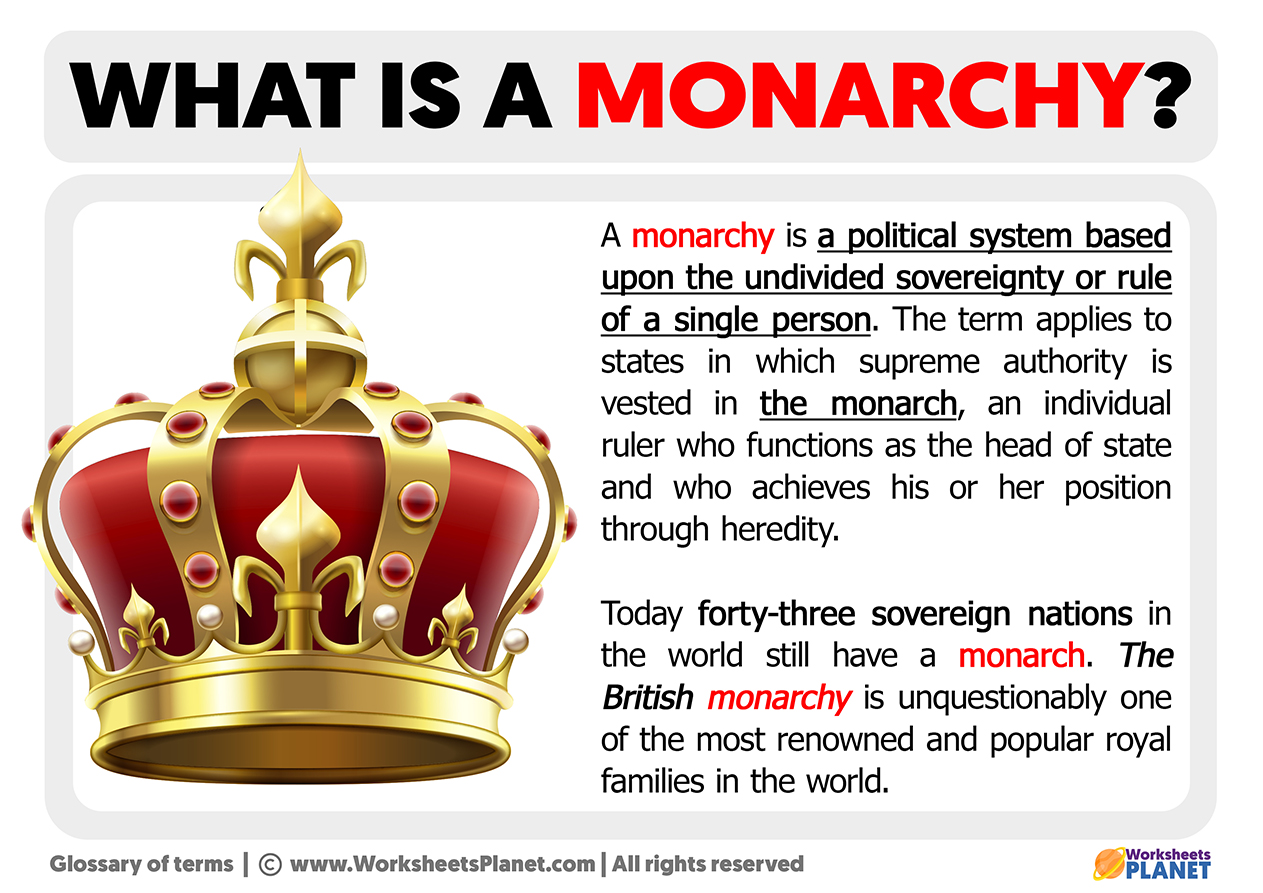The monarchy is the name given to a form of government in which the king is the head of state. Their powers and competencies vary depending on the type of monarchy that governs the country. While in parliamentary ones, the king is the symbol of the nation’s unity and has no power, in absolute ones, the king holds all the power at a national level. State.

In any case, several characteristics are common to all monarchies.
- First, succession is hereditary.
- Secondly, historically they have a lifelong nature, and their end can only be achieved by coercion, violence, or arms.
- And thirdly and lastly, the king is a single physical person, even though the royal house comprises more members.
What kind of monarchies exists?
Absolute monarchy
It is the oldest monarchy of all and was born in the Middle Ages. There is no separation of powers, so the king holds the judicial, legislative, and executive power.
Parliamentary monarchy
In parliamentary monarchy, the executive, judicial and legislative powers are completely independent of the crown. Hence it is said that the king reigns but does not govern. It is the most common of all, valid in countries such as the United Kingdom, Belgium, Sweden, Monaco, and the Netherlands.
Constitutional monarchy
And finally, the constitutional monarchy was born from the French Constitution of 1791. It was established in many European countries during the 19th century. The king only has executive power, while the legislature rests in the hands of a house of representatives elected by the citizens.

